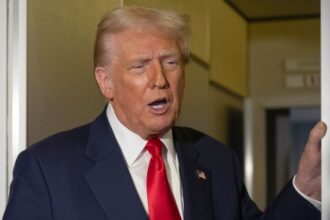The Supreme Court on Thursday upheld a tax law targeting U.S. taxpayers with shares in certain foreign corporations, a key component of the Republicans’ 2017 reform package.
In a 7-2 decision, the justices declared the mandatory repatriation tax (MRT) constitutional under Article I and the 16th Amendment.
Justice Brett Kavanaugh penned the majority opinion, with Justices Clarence Thomas and Neil Gorsuch dissenting. Kavanaugh emphasized that the court’s decision was narrowly focused on whether Congress could tax shareholders on a corporation’s undistributed income.
Court’s Reasoning and Implications
Kavanaugh noted the court’s long-standing precedents and congressional practices in support of the MRT. He stated, “Congress has long taxed shareholders on undistributed income. The Constitution does not demand that Congress refrain from such taxation.”
The ruling leaves the door open for potential future taxes on wealth and appreciation, issues not addressed in this case. “Those are potential issues for another day,” Kavanaugh wrote, sidestepping broader implications.
The decision also mitigates concerns about the broader tax code’s stability. Overturning the MRT could have rendered “vast swaths” of the Internal Revenue code unconstitutional and deprived the U.S. government of trillions in tax revenue, Kavanaugh warned.
Dan Greenberg, general counsel at the Competitive Enterprise Institute representing the Moores, expressed disappointment.
He argued that taxing shareholders on foreign corporation income they haven’t received is unfair and outside the Constitution’s intent.
The Case of Moore v. U.S.
The Moores challenged the MRT after being taxed nearly $15,000 in 2017 on their share of an India-based company’s reinvested earnings.
Despite not receiving distributions, the 2017 tax law required them to pay. The Moores argued this was unconstitutional since they had no realized income from the investment.
A federal district court and the 9th Circuit Court of Appeals upheld the tax, citing the 16th Amendment’s broad authority for Congress to tax “incomes, from whatever source derived.” The Supreme Court affirmed these decisions, maintaining that historical precedents support such taxation.
Justice Amy Coney Barrett, joined by Justice Samuel Alito, concurred with the outcome but not the majority’s reasoning. She argued the 16th Amendment does not authorize taxes on unrealized sums without state apportionment.
In dissent, Justice Thomas, joined by Gorsuch, contended the MRT is unconstitutional as it taxes unrealized gains. Thomas criticized the majority’s caution regarding other tax provisions, asserting that constitutional limits on taxing power must be upheld regardless of potential fiscal consequences.
Broader Tax Implications and Future Considerations
During oral arguments, justices expressed concern about a sweeping ruling’s impact on the U.S. tax system. Some sought clarity on Congress’s taxing limits, fearing the ruling could pave the way for taxes on unrealized gains in retirement accounts or real estate.
Justice Samuel Alito faced calls for recusal due to previous interviews with parties related to the case but declined, citing no valid reason for stepping aside.
The Supreme Court’s decision underscores the balance between upholding established tax practices and cautiously navigating future tax proposals. By affirming the MRT’s constitutionality, the ruling reinforces Congress’s authority to tax foreign corporation shareholders while leaving open questions about broader wealth taxation.












